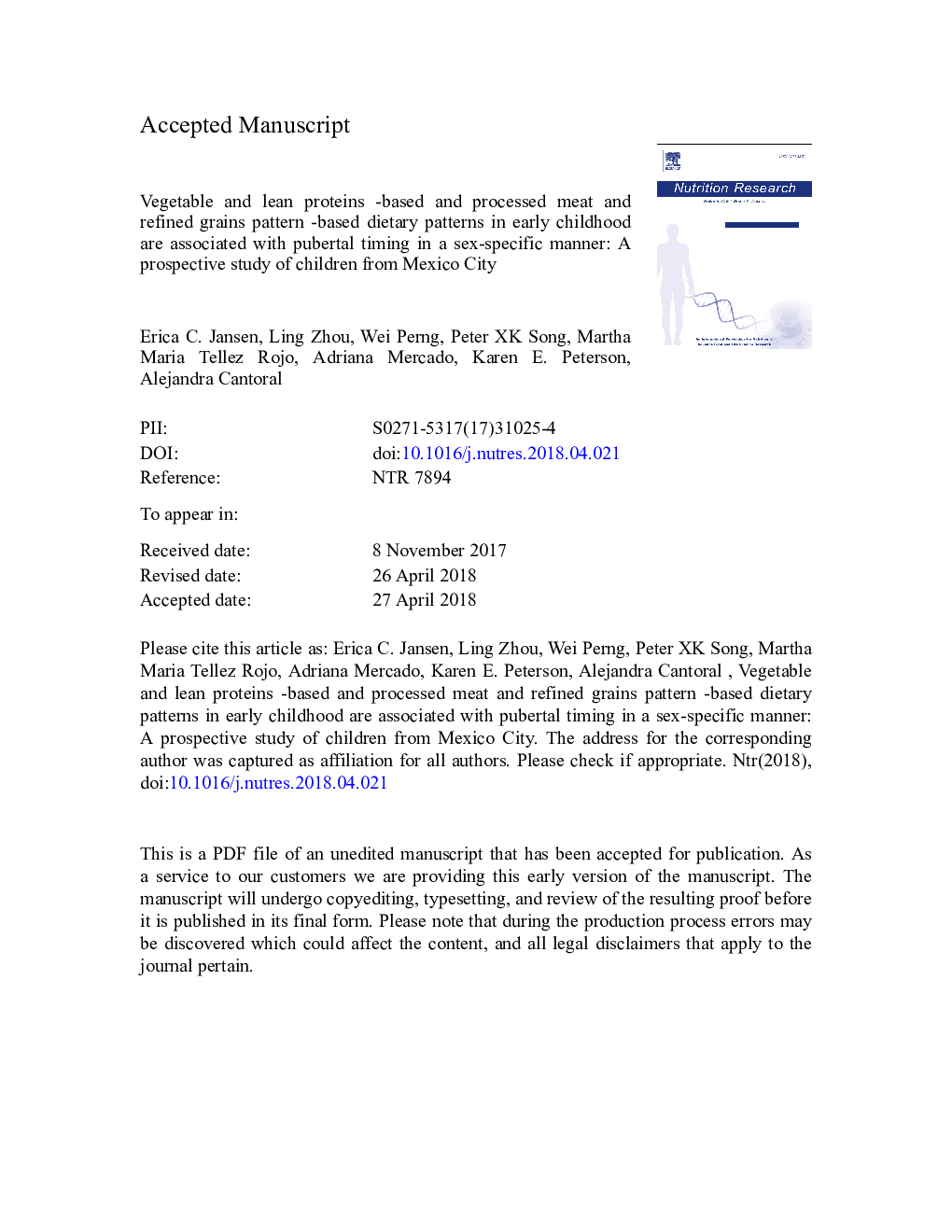| Article ID | Journal | Published Year | Pages | File Type |
|---|---|---|---|---|
| 8634020 | Nutrition Research | 2018 | 32 Pages |
Abstract
Childhood diet has been implicated in timing of sexual maturation. A key limitation of published studies is the focus on individual foods rather than patterns. We hypothesized that dietary patterns characterized by fruits and vegetables during early childhood (age 3 years) would be associated with delayed pubertal timing, whereas energy-dense and meat-based dietary patterns would relate to earlier puberty. The study population included 496 participants of a Mexico City birth cohort. The exposures of interest were dietary patterns derived from principal component analysis of dietary data collected via a semiquantitative food frequency questionnaire when the children were 3 years of age, and the outcomes were physician-assessed Tanner stages for pubic hair, breast (girls), genitalia, and testicular volume (boys) between 9 and 18 years, and initiation of menarche (girls). In regression analyses, we estimated adjusted hazard ratios and 95% confidence intervals for having reached Tanner stage â¥4 or initiation of menarche in girls and testicular volume â¥15â¯mL in boys. Among girls, those in the highest vs lowest tertile of vegetables and lean proteins pattern had a 35% (95% confidence interval 3%-67%) lower adjusted probability of having reached breast stage â¥4. Among boys, the processed meats and refined grain pattern score was associated with more advanced testicular development (adjusted hazard ratioâ¯=â¯3.58 [0.62-6.53]). Early childhood dietary patterns may play a role in the tempo of sexual maturation, which could ultimately carry implications for chronic disease susceptibility.
Keywords
Related Topics
Life Sciences
Biochemistry, Genetics and Molecular Biology
Endocrinology
Authors
Erica C. Jansen, Ling Zhou, Wei Perng, Peter XK Song, Martha Maria Tellez Rojo, Adriana Mercado, Karen E. Peterson, Alejandra Cantoral,
